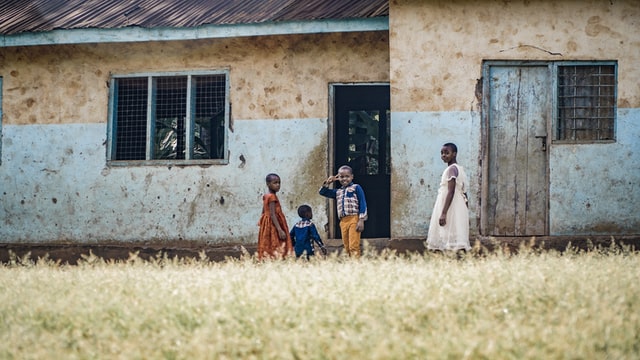Friday news roundup November 20, 2020

The Tanzanian government has been sued for banning pregnant girls from attending school. Equality Now, a women’s rights group, has filed a case against the Tanzanian government at the African Court on Human and Peoples' Rights over its ban on pregnant schoolgirls. A law passed in 2002 allows for the expulsion of pregnant girls from school for “offences against morality” and “wedlock.” According to a Human Rights Watch report, at least 8,000 Tanzanian girls leave school every year as a result of pregnancy. Equality Now has spent years lobbying the government to overturn the ban, which they say is discriminatory and has trapped many girls in a cycle of poverty, and has resorted to the courts as a last resort. The Tanzanian government has not officially responded to the suit.
Face-to-face Brexit talks have been paused as the EU’s chief negotiator must self-isolate after a member of his team tested positive for Covid-19. Michael Barnier closed down the talks in Brussels this week with the agreement of his British counterpart, David Frost. The UK’s transition period will end in six weeks on December 31, at which point it will leave the EU’s single market and customs union. There had been hope an agreement would be reached next week to allow time for the European parliament to ratify any potential deal. In an attempt to keep to the deadline, video conference negotiations will continue. French president, Emmanuel Macron, has called on the European Commission to intensify no-deal preparations to prepare businesses for the worst.
The Tax Justice Network has called on the G20 to tighten tax rules. According to a study by the global advocacy group, tax abuse by multinational companies and tax avoidance by rich individuals is costing countries $427bn a year in lost revenues. The report says that more than half of the losses come from companies moving $1.38tn of profits out of the countries where they are generated into tax havens, where corporate tax rates are low or nonexistent. Private individuals paid $182bn less tax than they should have by storing a total of more than $10tn in financial assets offshore. The Network are calling for the G20 to require the publication of profits made by individual multinationals on a country-by-country basis, so that “corporate tax abusers and the jurisdictions that facilitate them can be identified and held to account.” The five jurisdictions most responsible for countries’ tax losses are the Cayman Islands, a British overseas territory; the UK; the Netherlands; Luxembourg; and the US.
The number of couples getting divorced in England and Wales increased by almost a fifth in 2019. Office for National Statistics (ONS) data show there were 107,599 opposite-sex divorces in 2019, an increase of 18.4% from 2018. The number is the highest since 2014, when 111,169 divorces were granted. There were also 822 same-sex divorces, nearly twice the number (428) in 2018. The most common reason cited was unreasonable behavior (cited by 49% of wives and 35% of husbands in heterosexual marriages, in 63% of female same-sex divorces and 70% of male ones). Currently, in order to divorce, one party has to allege adultery, unreasonable behavior, or desertion by the other. If both parties agree and have been separated for two years, a couple can apply for a divorce. If only one party agrees they have to live apart from their spouse for five years before they can apply. A “no-fault” divorce is due to be introduced in autumn 2021, at which point people will only have to state that the marriage has broken down irretrievably. Some family lawyers are predicting a post-lockdown divorce boom, as the Covid-19 pandemic puts further strain on relationships.